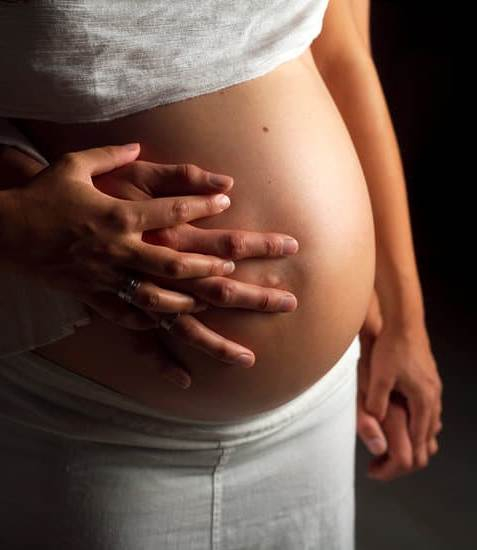Extra White Discharge Late Pregnancy
The body is going through so many changes during pregnancy, it’s no wonder that sometimes things don’t quite work the way they’re supposed to. One common change is an increase in vaginal discharge. This increase is caused by the body’s production of estrogen and progesterone, which work together to keep the vagina healthy and lubricated.
Sometimes, however, the increase in discharge can be too much. This is known as leukorrhea, and it’s basically an overproduction of vaginal discharge. Leukorrhea can be caused by a number of things, including pregnancy, the use of birth control pills, and vaginal infections.
Leukorrhea is most common in the late stages of pregnancy, when the body is producing even more estrogen and progesterone. This is because the increased levels of these hormones help to keep the vagina healthy and lubricated, which can be especially important in the later stages of pregnancy when the baby is pushing against the cervix.
If you’re experiencing a lot of discharge, especially if it’s thick and white, you may have leukorrhea. There’s no need to worry, though. Leukorrhea is a normal part of pregnancy, and it’s nothing to be concerned about. In fact, it’s a good sign that your body is doing what it’s supposed to be doing.
If you’re experiencing any other symptoms, such as itching, burning, or a strong odor, then you may have a vaginal infection and you should see your doctor. But if you’re just experiencing a lot of discharge, there’s no need to worry. Just keep your vagina clean and dry, and let your body do its thing.
Grey Clumpy Discharge During Pregnancy
What is it
Grey clumpy discharge during pregnancy is most likely a sign of a common infection called bacterial vaginosis (BV).
What are the symptoms
The main symptoms of BV are a grey or white vaginal discharge, a fishy smell, and vaginal itching.
What causes it
It is not entirely clear what causes BV, but it is thought to be caused by an overgrowth of bacteria in the vagina. This can be due to a number of factors, including changes in the pH balance of the vagina, a lack of vaginal lactobacilli, and using vaginal douches and other products.
How is it treated
BV is usually treated with antibiotics.
Can it harm my baby
BV is not harmful to the baby, but it can increase the risk of early labour and other complications. It is important to seek treatment for BV if you are pregnant.
What can I do to prevent it
There is no sure way to prevent BV, but you can reduce your risk of getting it by avoiding douching and other products that can upset the pH balance of the vagina, and by maintaining a good level of personal hygiene.
Discharge Late Pregnancy Brown
spotting or bleeding may occur during the last weeks or days of pregnancy. This is called discharge. It is caused by the breaking of the membranes that surround the baby and the release of amniotic fluid. Discharge may be accompanied by a feeling of wetness in the vagina and a low-grade fever. It is usually not a cause for alarm, but call your health care provider if the discharge is heavy, bright red, or accompanied by pain.
Foul Discharge Early Pregnancy
A pregnant woman’s body goes through many changes and one of them is an increase in vaginal discharge. It’s normal to have more discharge during pregnancy, but if you have a foul smelling discharge, it could be a sign of a problem.
There are many reasons why you might have a foul smelling discharge during early pregnancy. One of the most common causes is a bacterial infection, such as bacterial vaginosis (BV). Other causes of a foul smelling discharge during early pregnancy include trichomoniasis, a sexually transmitted infection, and a yeast infection.
If you have a foul smelling discharge during early pregnancy, it’s important to see your doctor. He or she will be able to determine the cause of the discharge and treat it accordingly. Untreated infections can cause problems for both you and your baby.
Does Your Discharge Smell In Early Pregnancy
The short answer is yes. While it’s not always the case, a fishy smell coming from your vagina is often a sign of bacterial vaginosis (BV), a common infection during pregnancy.
BV is caused by an overgrowth of certain bacteria in the vagina. When left untreated, it can lead to a number of complications, including preterm labor and delivery.
So what can you do about it
If you suspect you have BV, see your doctor for a diagnosis and treatment. Treatment typically involves antibiotics, which are safe to take during pregnancy.
In the meantime, there are a few things you can do to help relieve the symptoms:
1. Keep your vagina clean and dry.
2. Avoid using scented soaps, bubble baths, and other feminine hygiene products.
3. Wear loose-fitting cotton panties.
4. Avoid sexual intercourse until you’ve been treated.
5. Drink plenty of fluids.
6. Get plenty of rest.
7. Apply a cold compress to the area if it’s swollen or inflamed.
8. Take over-the-counter pain relief if you’re experiencing discomfort.
If your discharge smells bad, it’s important to see your doctor as soon as possible. Bacterial vaginosis can cause a number of serious complications if left untreated, so it’s best to get it taken care of as soon as possible.

Welcome to my fertility blog. This is a space where I will be sharing my experiences as I navigate through the world of fertility treatments, as well as provide information and resources about fertility and pregnancy.





